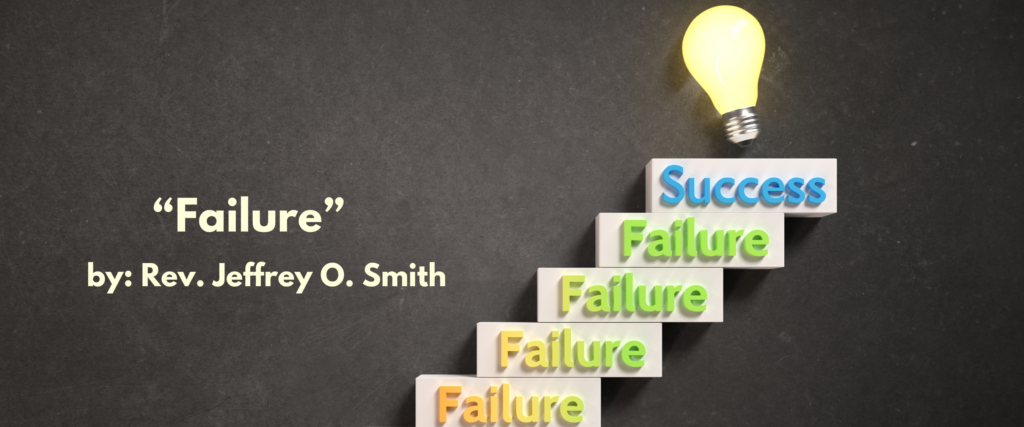Kids pass through a school system that measures success based on percentages and letter grades. If they don’t reach a certain percentage of aptitude, then they receive the letter F for Failure.
In adult life also, we have measures of achievement, and there are different measures depending on what pursuits we are engaged in. Economically, for example, our measure of success is how much money and stuff we have. If we have enough money for vacations and fun (expensive) toys, then we are a success. If we can’t manage to pay our bills, we receive an F.
In a similar way that a failing term grade is averaged from a number of assignments and tests, a feeling of failure in life is typically an average of life experiences. We’ve tried again and again in our relationships with a child or spouse, and the end result is an F. We make an effort over and over again to form a spiritual connection with the Lord, and we still come up short.
One way to look at all the failures of our past is to see them as just that—failures. End points. Anchors.
But we can look at them in another way. We can see them as data points. We can see them as beta tests for a new product. After all, the difference between a successful person and an unsuccessful one is not that the successful person has never met failure. Just the opposite—they’ve likely failed MORE than the unsuccessful person. The real difference is that one saw the failure as a learning opportunity. They tried something and it failed. Well, why did it fail? Where did things go wrong? When and why did they lose motivation?
Related to failure is accurate testing. Are you really measuring what you think you are measuring? For example, if you believe a relationship failed, a very important question to ask yourself is “What is a relationship?” If a relationship means “I get what I want,” then, yes, it will fail. But if a relationship means “I love another person in the way that they need and in the best way that I can,” then I’m quite certain you will find success.
There are some humans who can learn from just a few failures and amend their ways. There are others though, who fail thousands of times. Thousands of times they either did the same thing and got the same result, or they did a thousand different things and ended in the same failure. What matters, though, is that those failures—those learning experiences—lead to a successful relationship with a loved one or a meaningful connection with the Lord.

